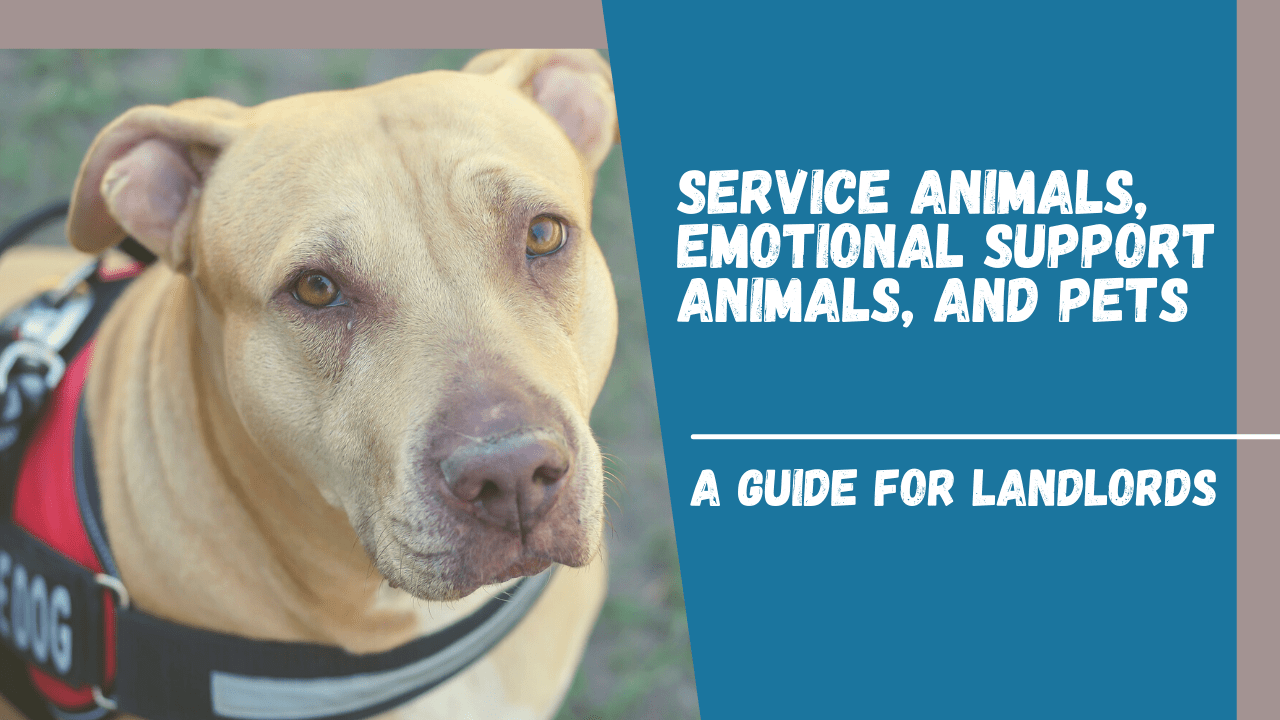
Pets and companion animals are extremely common in British Columbia rental properties.
If you don’t allow pets in your rental property, you may have trouble attracting tenants, leading to longer vacancy periods and less rental income.
As a landlord in BC, it’s well within your legal rights to prohibit tenants from having pets. You can also restrict what kinds of pets are allowed.
But service animals and emotional support animals are a bit different, and the laws continue to evolve in this area. In BC, you’ll have to provide reasonable accommodation to anyone who would experience an adverse impact of living without their service animal.
Here are some of the things housing providers need to know about pets as a landlord in Kelowna and throughout British Columbia, Canada.
Welcoming Pets into your Rental Property
The tenancy agreement is where you need to establish your pet policy, specifically whether tenants are allowed to move in with pets. If you do offer a pet-friendly property, you have the option to restrict the size, breed, and number of pets that you’re willing to accommodate. Many landlords agree to consider pets on a case-by-case basis. This is also permissible, and you can negotiate the terms of having pets move in with your tenants before they sign the rental contract.
Landlords can also collect a pet deposit for any potential damage caused by the pet, which can be no more than 1 half of 1 month’s rent.
Your pet policy should establish that tenants are required to clean up after their pets and pay for any repairs or replacements that are due to damage the pet has caused.
If you’re renting out a property that’s within an HOA or a condominium, make sure your pet policy is compliant with those bylaws, rules, and regulations.
Service Dogs & Therapy Animals in BC Rental Properties
While you can implement as many restrictions as you’d like for pets, service animals, which are also referred to as guide dogs, are not considered pets. According to human rights laws and strata bylaws in BC, service animals are legally allowed to live in properties with tenants who need them. This means that even if you have a strict no-pet policy, you must allow service animals. If you don’t, you could face legal penalties.
Pet damage deposits are not permitted for service animals or guide dogs. There can be no restrictions on those animals and if you need extra clarification on what this means, we invite you to talk with a Kelowna property manager or spend some time on the British Columbia’s website on pets and residential tenancies.
The section, Restrictions on guide or service dogs aren’t allowed, states:
Human Rights Code Under section 8 of the Human Rights Code (the “Code”), stratas are prohibited from enforcing or applying their bylaws in a way that discriminates against a person based on a disability, including physical or mental disability. (Kallstrom v Strata Plan BCS 1437 and others, 2019 BCHRT 215 at para 17). Source: ylaw.ca
People with disabilities who have guide or service dogs are allowed to have them in rental units without any restrictions. Landlords can’t reject someone as a tenant just because they have a disability and rely on a guide or service dog for assistance.
If you’re still not convinced, or you’re having trouble with a potential landlord as a tenant, you can refer directly to section 8 of BC’s Human Rights Code 1(b):
(1)A person must not, without a bona fide and reasonable justification,
(a)deny to a person or class of persons any accommodation, service or facility customarily available to the public, or
(b)discriminate against a person or class of persons regarding any accommodation, service or facility customarily available to the public because of the Indigenous identity, race, colour, ancestry, place of origin, religion, marital status, family status, physical or mental disability, sex, sexual orientation, gender identity or expression, or age of that person or class of persons.
Similar laws apply to strata owners as per BC’s Strata Property Act section 123(3).
A bylaw that prohibits a pet or other animal or that restricts the access of a pet or other animal to a strata lot or common property does not apply to:
(a) a guide dog or service dog, or
(b) a dog that is a member of a retired guide or service dog team if the person who is a member of the team is an owner, tenant or occupant.”
Allowing Emotional Support Animals
 Emotional support animals are fairly new to rental laws and housing authorities in Canada. The term “emotional support animal” or ESA isn’t even a legally recognized term in Canadian law. However, the law does protect emotional support dogs. In those instances, they’d be treated just like any other service animal, and you would have to allow them into your property.
Emotional support animals are fairly new to rental laws and housing authorities in Canada. The term “emotional support animal” or ESA isn’t even a legally recognized term in Canadian law. However, the law does protect emotional support dogs. In those instances, they’d be treated just like any other service animal, and you would have to allow them into your property.
Only a mental health professional can determine that a tenant requires this type of support. Individuals are also prohibited from training their own animals and getting them certified as service or support animals.
As a property owner, you can rest assured that the law in Canada requires the owner of an assistance animal to pay for any damages caused to your property.

Vantage West Property Management
We know this can be a confusing area when you’re renting out a property, and that’s why we’re here to provide as many Kelowna property management resources as we can. If you have any questions about your own rental property and what’s required of you, please contact us at Vantage West Property Management.
